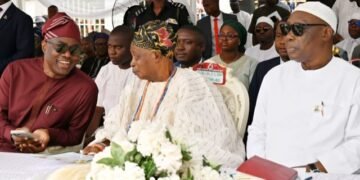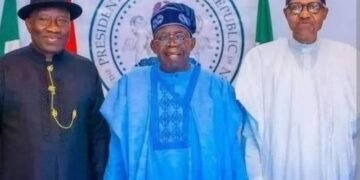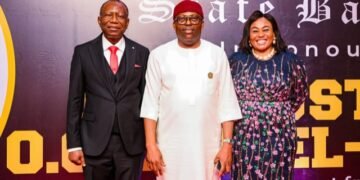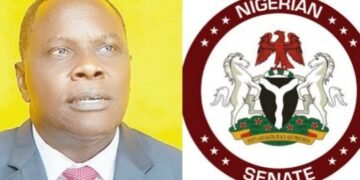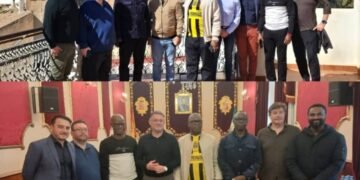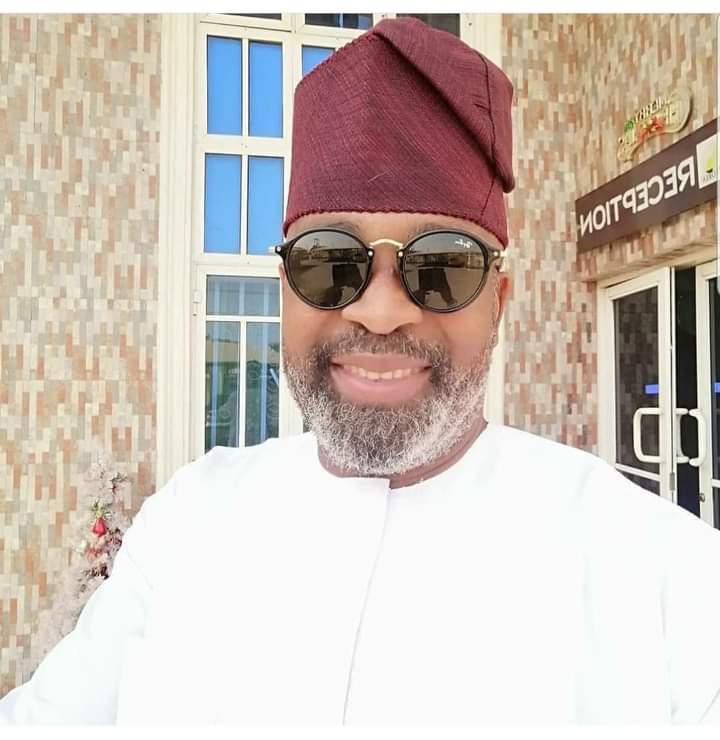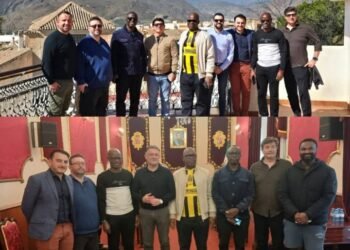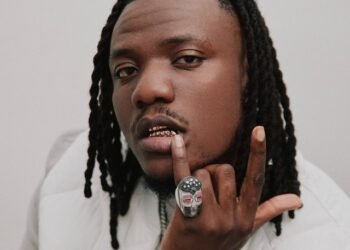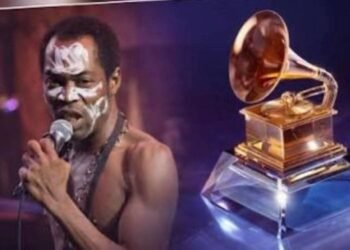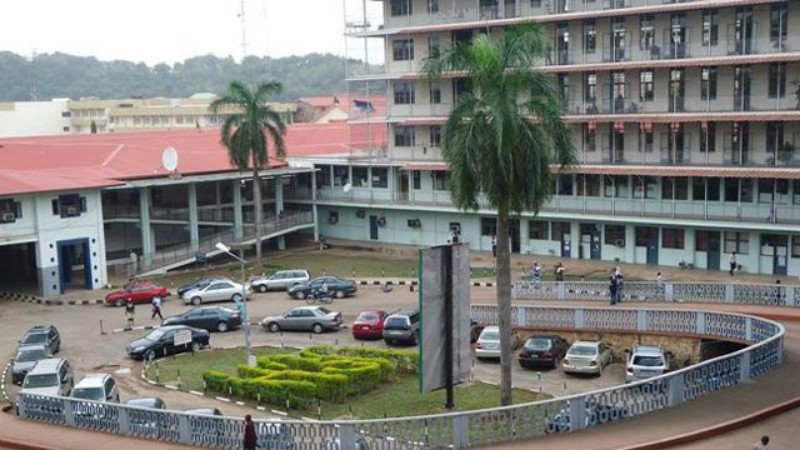Because of Soyinka I Dropped Law For Drama– Yemi Solade
Agbaakin Olayemi Olufela Solade (popularly known as Yemi Solade) is a veteran Nigerian actor who has been on the scene for 44 years, and still counting. He got his first breakthrough in the world of acting when he participated in the biggest cultural festival ever celebrated in the country, FESTAC ’77. The multiple award winning-thespian, in this exclusive interview with www.newscoven.ng, speaks on his journey through the world of acting and problems besotting the Nigerian film industry, among other issues.
You are one of the leading voices in the Nollywood industry. Can you talk about how it started and other contemporary issues affecting the industry as we are witnessing in recent times.
Well the beginning, for me, was during the FESTAC ’77. I was one of the youngest actors in that festival- it was a global event; Nigeria hosted it in Lagos. I was a very young lad; I was just 17. I represented my country and I didn’t know that it would become the vocation for me eventually, given that I was then someone who just left secondary school. I only went for an audition and I got a role. I didn’t see it as any big deal.
Prior to that, I have always been a dancer: Lagos State Dance Competition Champion; National Disco Champion; African Dance King and all of that. I have always loved to entertain, and, therefore, being part of FESTAC ’77 was another platform for me to entertain.
Even as shy as I was in those days, I love doing my things, expressing my innate talents. I knew I loved dancing and I felt that I could do this acting as well because I have always loved the tube and watching the screen. Those days, I did not see much of our own actors; I mean the Nigerian actors. I saw the white folks, you know, on the black and white television. In 1978, after the FESTAC ’77, coloured television came in. I think the festival heralded colour television here in Nigeria.
So, I have always been a TV person. Till now, I love to watch the screen. And that was the very beginning. For 44 years, I have done so much on stage, radio, television and what you called Nollywood now. Nollywood came around 1988 as an experiment kind of by the late Muyideen Alade Aromire. May his soul continue to rest in peace. Nobody knew what was going to happen. It was not only him: Sunday Akinola (Pa Feyikogbon); I think Big Abass too, Ojo Ajiboye. They were all experimenting, but Alade was more profound. These guys would record their dramas, using camcorders, and place them in bookstores, just like the televangelists would do with their preachings and sermons. Patrons of bookstores and those other stores were cajoled into watching those stuffs. That was the experimental stage.
By 1990/1991, it began to have this form. However, that name, Nollywood, must have come from your world, journalism. People like me never liked the name, Nollywood, because we felt it was a mimicry of Hollywood and Bollywood; that why would I have to copy-copy, like Fela Anikulapo-Kuti would say? You don’t just follow-follow. But whether we like it or not, it has come to stay.
We tried to resist it out of our consciousness, but it has become a global brand. When you talk about Nollywood or Bollywood, you have to mention Nollywood. And we have been touted to be the second largest movie-producing country and the third biggest in the world. So, Nollywood has brought in a lot because before Nollywood, people barely showed keen interest in what was happening in acting on the screen.
Yes, we had popular TV programmes- we had The Masquerade; we had Yhe New Village Headmaster; we had the Hotel De Jordan, Cock Crows At Dawn. Even before then, from Ibadan here where the first television station started in Africa in October 1959, dramas started here too on the screen. We grew up to watch classics from Hubert Ogunde, Duro Ladipo, Oyin Adejobi; we had encountered Alhaji Kareem Adepoju (Baba Wande) and so many of them, up to the late Olumide Bakare (Koko Close), even to Akin Lewis, my friend who was doing the Why Worry the Barber and so many others like that.
People are saying that stage play was more creative, bringing out the best out of the actors, unlike what we have now in Nollywood. What is your take on this?
If I should tow that line, I would not know whether I will be objective in my assessment. I will say stage play afford a good actor- let us limit it to an actor because he is the person you will see and recognise the face once that actor is regular in practice- to explode and develop roundly. There are two types of actors- we have the flat ones and we have the round ones; the stuck ones and the dynamic ones.
For me, I enjoy stage acting more because of the time it allows the actor to build the character he is to present on stage. It is like football: when you go to the stadium to watch football, it is different from when you watch it on the screen. You are seeing something live; you cannot cut it and say you are taking it again. If you are presenting a play for 90 minutes, you would have rehearsed for weeks, prior to the presentation of the play. So, everything is mastered; you are a master of what you are presenting. There is no excuse; no mistake should come up. That is why some of us are lucky to have gone through drama schools to start from the stage and it rub off on what we do on the screen because the media are different.
Some stage actors have not been able to break even on the screen. I think I understand why. Some cannot break away from what is called stage acting which is mostly highly exaggerated, compared to screen acting which is mostly milder.
Can you explain what you mean by saying stage acting is exaggerated because stage play is real, compared to what we have in screen play where there must have been a lot of editing?
There is no acting that is real. Acting is make-believe. If acting were to be real, you would not see a character, either on stage or on the screen who dies and you see him in your neighbourhood the following day.
What I mean by real is the actor in question would come on stage and, like you said earlier, start displaying what he has learnt, unlike what we have on screen where you can edit…
That was what exactly what I meant: that for one to present a stage play, it takes series of rehearsals. It could go for weeks, months and once it is perfected, then you go on stage.
But what I meant by exaggeration is that when you are presenting a play on stage, which is live, a stage actor is expected to have, among his several tools, a very powerful voice because you don’t use the microphone or what we call projection. If you are performing in a theatre of 3,000 capacity, the last person on the last seat must hear you very well. So, the first thing you have to do is to build your voice. Clarity of voice and your diction have to be perfect. That is it. So, the training is different.
These days, you would find all sorts of people being called actors. Some times, I fault the Nigerian journalists for hyping unnecessarily some faces. Acting has become an all-comers affair: anybody can just stroll in and say ‘this man looks like you and he can act’. If the man says ‘no, I cannot act’ you will hear ‘no, don’t say you cannot do it’. You don’t that on the stage. That is why I said you cannot just bring anybody to the stadium on the day of a football match. Those who have been camped, trained and certified medically fit are those that would play the match. That is what stage acting is about.
If you are the master of your performance for presentation of that play, for 90 minutes, you are the god of what you do. There is no room for a second take: whatever that happens to you- if there is an accident, maybe, along the line, you forget your line or something happen to you, health wise, then you will derail every other person and you will ruin the performance.
So, basically for me, stage acting is more grotesque and more cumbersome because it takes a lot from you. You want to present a play for a night and you are there camped, or you go forth and back from your home, it could last months or weeks before you present. It takes more from you as an actor, as against screen acting, especially these days.
Before Nollywood, Nigeria had always been in filmmaking: at least, we had the Ade Loves, the Hubert Ogundes, the Baba Salas, the Eddy Ugbomahs and all of them made films and cinemovies. Just like it was with stage production, a movie, those days, would take almost a year or even more. Then, the technology were different from what we have now; everything is more compact now. Those days, recordings were more like mysteries; the producer may not even see what he was producing because everything was on celluloid and optical movies, and they are from the UK. We did not have the storage facilities, even up till now. Even the technicians would come in from the UK and make recording here and go back to their country for post-production and the producer only gets to see the end product, good or bad.
But now, as you record, you see it, just like your phone is here; you take some photographs, you don’t like what you see, you delete. You can take as many shots as you like because you are not using the film. You can snap like 200 exposures and you need only just one. When we were young, in the days of black and white cameras, you go to take a passport picture, mostly on Sunday evenings and the photographer is hiding behind a black cloth, adjusting the cloth, dressing your posture and then it could take you one week or more to get your photo. But now, you can snap and get the photo immediately.
So, things are evolving. But if you still ask me which one I prefer, I will tell you it is stage play because it allows me to act. Sometimes, I don’t get to act when I am in front of the camera, unless the role is major and the script is challenging. Sometimes, I forget I had gone to work because most scripts are so watery these days; the directors are lazy; a producer would just want to do yahoo with his script because everybody is now coming on board just to have a bite.
Would you say technology has reduced the quality of what we have now?
No! Technology has actually advanced the quality. But it is the practitioners that should be looked into: let us pry into what they do. Some are not schooled in film making: there is film education. Some still bask in the euphoria of what they were doing prior digital equipment. We now work with HD, Ultra and what have you. Everything is changing. You cannot compare a LCD plasma to LED. So, if you are not going with technology, you will think that you are the best.
How good are these individual practitioners?
You see, a producer is as good as his work. When I see a movie, I will tell you the quality of the producer. You cannot give out what you don’t have. You cannot expect a producer who is not educated- when I mean education, the classroom and even the society education- to give you a blockbuster that you will go to see at the cinema; don’t expect it. They would only end up with marketers at Bolade Oshodi. But the serious movie-makers who are really investing, who have gone round the world and who are really articulate don’t settle for less. We have a number of them these days. Some just started few year ago and they are making big marks, globally.
So, this is why I say education is important-the classroom education and the one you get from the society. I am not even keen about you going to a drama school, but, at least, be educated. You can veer into film-making, that education that you have brought in would propel you into what you want to do. So many filmmakers did not even study drama or acting, but once they knew they wanted to venture into it, they would start reading again.
Critics of the Nollywood are insisting that there is a sharp drop in the standard of what we are watching on the screen nowadays. What propels you in taking up a role?
Two things: I am a general practitioner; I don’t do any other thing. I should be seen to be practising my trade. I like comparing what I do with football. Lionel Messi must go for trainings; he must play matches. It is not every match that is okay for him; some days, he is miserable. We have seen him frustrated; we have seen Cristiano Ronaldo frustrated. We watched Euro 2020 and we saw what happened to see these great guys. But when the day is good for them, you will think that they are the only ones. So, it also happens to the actors.
What I am saying in essence is that I look at the roles most times. The roles are quite interesting that would allow one to really act, interprete roles and create characters within the characters that had already been written in black and white. As a dramatist, I understand how to attack most of the roles I play, especially when the role is the lead or the major role. I put my soul and everything into it; I want to do something that would stand out and I have been lucky to have been offered roles like that and that actually stood out my performance.
But most producers these days want to play their own lead role and that is why we have a preponderance of everybody just wanting to be an actor. They think that acting is just all about you becoming popular. They don’t see it a profession and that you just have to a passion for it. Rather, they see it as a means to make name. Some think that it is a money-spinning business…
But is it not a money-spinning business?
It is not.
Taking yourself as an example, you have been there for 44 years, how beneficial has it been to you, monetarily?
It has been good to me, but it is what I will say it is never balanced. There is so much imbalance because one does not get to work with the caliber of producers one desires all the time. In a year, I could be lucky to get offers from those big producers and I smile at the end of the day. But what you called smiling is not even what one should smile about because Nigerians really know how to exploit. Acting is a profession that does not have security of any kind.
A producer has like more than five, six options in the acting line: ‘If I can’t get Yemi Solade, let me get RMD or let me look for Akin Lewis or Sola Fosudo’. So, we are more like endangered species and if you look around the society, you will see that what you see around us is more like appalling socially. The people you called celebrities are indulging in some activities that would make you feel like why. You can imagine some are twaleing some people that we should naturally see as social misfits. But we know what that means; it is for survival because what that guy is going to dip his hand into his pocket to give you is more than what you earn professionally, and that is one of the saddest part of the industry.
How would you describe your journey so far in the world of acting and film making?
It has been a roller coaster thing; it has been fun. For me, acting is in my DNA; it is just there. I have had all the moment: the good, the bad and the ugly. But because I see myself, like a pastor will say that he had a call, I had a call too. Acting is my calling and I only desire, I only hope and I always wish to land myself good roles that will attract good pay. I try to be sensible and to be very wise so that I will remain in the game.
It is very easy in Nigeria today to be out-priced out of the market. As much as one needs to do well, pocket wise, some have come. They chased the pocket, they made the money, but after a while, they are no longer there. The names are still there but we don’t see them any longer. They are called veteran actors; those who have not worked up to 10, 15 years. They are no longer relevant because it is a phase that has been established and they gave in to that phase. But when they fall, you now read all sorts about them. These were guys who hit the limelight and were paid when the pay was heavy then. But what they gave them then is like what you can give to the area boys now.
But looking at the standard of living then, the pay was heavy then…
Well, it could look like it was heavy but then the purchasing power is what drives a lot of people to be wanting more. I did my National Youth Corps Service in Maiduguri and my monthly allowance was N200. It was a big money then because I bought jeans, I bought my cigarettes and I drank my beer and I hung around my girls with that N200, though I would spend the money for like four or five days and I will thereafter live on the girls for the rest of the next three weeks before I receive the next allowance. But some who were prudent- who didn’t smoked or drank beer- were able to sustain themselves.
So, basically, acting as afforded me a lot of things, even I would want more because I think I deserve more. I am not the type of person that would wait for people to tell me how good I am in what I do; I always tell myself that I am the best in what I do. There was no competition.
How did you fare all these years against great acts in the industry?
I love to work with very talented people. Talents make me emotional. There was a programme I watch on television; it is called America Got Talents. Each time I watch the programme and I see special human beings, my eyes get teary. I watch Voice Nigeria and lots of that. I love talents and talented people. I look and I do wonder how can this body accommodate all of these special qualities? How can this person sing this greatly?
So, I get moved when I am on set with talented people. It helps me to do my best as well because it is a challenge. It helps me to move from where I am to the next level. This is because it is a challenge; it is a race. The 100-metre dash is about the best and the fastest in the world. So, the best should come together and do it.
We are not saying that that should happen all the time, but I always get elated when I get called to be part of a project that parades very talented actors. I feel proud when I find myself in such situations and I would always want to leave my own mark because every production I do that and that is major, I leave a mark.
If you had not been an actor, which other profession would you have preferred?
Law. I would have been a lawyer. Interestingly, I was given admission to the then University of Ife (now Obafemi Awolowo University), Ile Ife, as a Law student but I changed to Drama after four weeks because I wanted Professor Woke Soyinka to teach me and I achieved my goal and the rest is history.
Did you have any regrets taking such a decision?
No; none at all.
So, if you come back to this world again…
I will like to act, but I am not too sure whether I will want to do it in Nigeria. I have seen some crazy moments here. But then my grandfather would tell me in those days that you make the very best of every situation you find yourself. So, I cannot sit here and be gnashing my teeth. Let me just do the best that I can; it is just one life to live and there is no photocopy. If I had relocated to the US, Canada or the UK, well I don’t know if I would be acting.
You are well-traveled, would you say traveling majorly impacted on you as an actor?
No. I am that kind of a local actor. You see, I am made in Lagos but for the world. I am really Lagos-made; born in Lagos, embraced entertainment in Lagos and most of the things I have done as an actor I have done in Lagos. So, the environment is a contributing factor; it inspires a lot. I am the type that likes to look around. I live on an estate that is highly densed: you will see everybody; the haves and the have-nots. What else do you need? You tap from all these things. You see the relationship between a man or woman that is big and you will say that is a rich person and you will those that don’t have and then you will see the way they connect. This is because we all need one another; nobody can live in isolation. So, I see and observe a lot. I am that kind of a person. I live my life quasi-isolated. I like being on my own. It allows me to observe.
Without being partial, would you say Nollywood is still playing that role expected of it by the society, given the negativities we have been hearing about many of the actors?
The thing is that Nollywood, unfortunately, has been grossly ethnicised. The nomenclature, Nollywood, like I said, is just a phrase. In Nollywood, there are over 20 splinter groups: you will hear TAMPAN here, ANTP there, Guild of Directors and all sorts. You will hear people saying Yoruba side of Nollywood; Igbo side of Nollywood and the Hausa side of Nollywood. Of course, you still have the minorities: you have the Nupes, Efiks, the Benin people and several others, all fronting for their various ethnic groups. You have them all over.
What you think should be an advantage for everyone is not; it has become what I will call an headache. I think it is just a microscopic picture of what Nigeria is itself. The Yoruba will not trust Igbo; Igbo will not like Hausa people. Nigeria has over 700 local languages and we have been told some 250 or more ethnic groupings. So, how would you have a central body for all of that? Lai Mohammed, has a lot of problems. He does not even know who to attend to- that is the Minister of Culture and we fall under the Culture Ministry- and we see the names that were invited and many of them were not even supposed to be there. So, that is the problem and it is affecting Nollywood.
Now, on the moral issue, negativity would always work hand-in-hand with positivity. That is why you day and night; you have black and white; you have light and darkness. They must work hand-in-hand. If Judas Iscariot have not been part of the ministry of Jesus Christ, the reason for the coming around of Jesus Christ would have been useless. You must have a mole.
All these funny stories…I have also had my own fair share of bad press as well, but not as notorious as the ones we read these days. We are reading about rape; of course, we have been reading about rape in the past. But the Social Media have amplified it a lot. Then, some bloggers are generally lazy; they lift and embellish stories because they just want to make some cool cash, not minding the impact of such story on the life of the affected individual. That is sad in itself.
We were in this country when some journalists were killed. Terrible as it was, but I think some of them took journalism too far. There was a time, I can’t recall the year, that about three or four journalists were killed in a row. Who killed them? We don’t know. What did they do? We don’t know. The story of the late Dele Giwa, since 1986, has not been resolved. I would not want to read anything that would ruin my life or destroy my home at my age, even if I am younger. But some persons derive joy in making some people cry and some journalists, especially social media journalists, thrive on this…
But there is a difference between the journalists coming from the traditional background and those you described as social media journalists…
Yes, I know that most of the traditional media practitioners would go the extra mile to get their stories. You can contact your subject, just like we are doing now. and get first-hand information. You get your subject on tape and get his or her pictures. But journalism, like my profession too, has been bastardized and is now very porous. The entry point is zero now, once you have your Android phone. The same in my profession where anybody can be an actor. But there are journalists and there are journalists. Every profession have that; we have seen fake soldiers, fake medical doctors and fake lawyers. But, because we live in the public glare, our stories fly so easily.
I know that Nigerians like gossips; they don’t like good stories and good stories really don’t sell. Nobody would be interested in knowing how many awards Yemi Solade has won; rather, they would want to hear that he slept with one female student from the University of Ibadan. In essence, the person writing the negative stories is also culpable of the same allegation.
Your love and passion for acting are very clear, but is any of your children embracing the profession?
Well, I have them, but I don’t know what they want to do. I have children who are into entertainment, but, just like I grew up to determine what I want to do, I want them to grow up to determine what they want to do. I have a boy, I don’t know what he will do eventually as he is still a very young boy. He plays music, saxophone and he is a taekwandoist. He likes to destroy, dismantle and assemble. I see engineering in him, but, at least, he blows his sax. I have a daughter who loves to model and she has been doing it. From when my children were born, some of them have modeled; they have featured in television commercials and on calendars.
Would you be happy if any of them eventually takes up acting?
Yes, I will be happy and I will definitely mentor them because I have mentored some young ones who are not related to me. I would want my children to do better than I am doing; it would be my joy, not necessarily for the monetary aspect of it, but to stand out and be very good. You see, we are heading for that point where the very best will look for the very best. It is beginning to happen because if I look at the nature of productions I have done this year, they have been cinema jobs coming from serious-minded producers. I still do some ebowitiwiti (the easy ones) kind of, but the game is becoming more interesting. So, if my children, peradventure, say they want to go into acting, I am here to grow and manage them so that my own experience would rub off on them. This is because I should be able to guide them so that they can do the act right.
What can our actors do to take themselves away from scandals?
I think it is just by being themselves and not being concerned about this celebrity wahala. I always tell people that I am not a celebrity; my name is Yemi Solade. If I am a celebrity, I don’t think I will be so exposed to many people. That is what I know about being a celebrity. You would hear that Desiree Washington is in Jericho, but you won’t get to see her. You will see her people; you will feel that she is there, but you won’t see her. That is a celebrity. A celebrity is not someone that you will be meeting at local amala joints and you say, ‘pay for me, I do watch your films’.
So, the celebrity thing is a problem for a lot of our guys. They think once they have been able to break through and they are hailed in some quarters, they have arrived. But these are people who would still go and crouch before some members of the society; they are crouching before politicians; they are crouching before some other professionals that I don’t want to talk about here.
Why I should I go and be subservient to a governor who is just doing his own business? If the governor of Oyo State walks in here now, it is none of my business to stand up and greet him. If I choose, fine, but don’t compel me to stand up to greet him. It is not written in the Nigerian Constitution that I must stand up and greet him. Well, there is a way you greet a royal father and if I don’t greet a royal father, there is no Court of Law that can convict me. Am I his subject? Am I from his town? I have my own oba where I come from in Abeokuta. If I choose to prostrate before him, he is my royal father.
You must have some stubborn traits in you?
Of course, I am radically-minded. I am a bit of leftist and a lot of people know that. Ask them in my industry, they will say ‘agidi omode’ but I don’t mind. Some will tell it to my face, while some gossip and they will say ‘o lagidi ku. He is too proud’. And I do tell them that ‘yes, I am very proud. But do you know why I am proud? It is because I love myself.’
Where did you hope to see acting and the film-making industry in Nigeria?
It will continue to grow; it is a normal phenomenon and it is evolving. If you are talking about Nollywood, acting generally is the best thing that has happened to me because it gave me everything that I have today. I met my wife in the course of acting. What else? It is not about material things. I have been gifted with so many things.
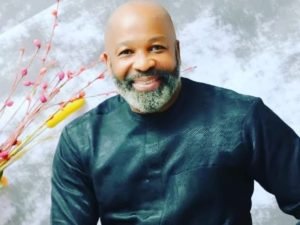
By all standards, you are handsome. How do you resist temptations from the Daughters of Eve?
Me too, I am a son of Eve. We all emanated from Eve. Two individuals were created and so all of us are related through Adam and Eve.
But seriously, I know what I look like in the mirror; I know my age and I know where and what I have been through. Certain things probably don’t interest me so much these days. It is not about just any opposite sex. It is not about sexism; ‘ah, she has nice curves. Look at her well-shaped breasts’. It is about when we sit together, can we converse? Can we hold a discussion? What is that person bringing to the table? See, I am a little bit cerebral. If we cannot sit down and we talk about some issues, that lady will just be like a nonentity and I will not get tripped. I am serious about this. I know people that are highly intelligent, men and women.
You can never imagine what trips me. Yes, I like people that are good-looking. When I was at Ife, I choose my friends based on physical look. If you are not good-looking, don’t come around me. Even in some of my social media stunts, I write, “Don’t fight ugly persons. They have nothing to lose”.
Seriously again, one runs into the opposite sex, some of them, you don’t even know their mission. Some are just endeared to your craft. They make like your person, probably because of what they see; your carriage. But some are deep; they are not about your popularity or being good-looking. They really know what you think they don’t know about you. They will tell you your story and then, I will be fascinated.
These days, we have so many plastic ladies. If you hold them to snap pictures, you will think you are holding a wood. Everywhere is packaged and padded and, sometimes, you will be nursing the fear that is she a member of the Boko Haram sect. You want to hold her waist just to snap photos and you will be wondering what is it about all those things wrapped around her body. Some would try to entice you on the social media. If run into them, they would be like “you are looking at me as if you don’t know me. I do chat with you.” They would seek to introduce themselves, but you will need to double-check to confirm if truly they are the one.
This has even seriously affected some ladies in the field. Serious auditions would be going on and, if peradventure, I get selected to be part of the panel to select some faces, you know everything starts from the pictures they have submitted and you say “okay, let us look at this lady’s face, using her pictures”. You call them in, one by one and you start with the name but it will not correspond with their pictures.
You see, some go to the extreme. Everybody wants to look nice but they forget the fact that there is technology and this is a real world; real in the sense that you have to meet some people eventually in your natural self. It is like a man who is lusting for a lady on the social media and he is doing everything to get her. Once they get into their hotel room, the man would be like ‘oh, I don enter one chance. Let me just run this session once. I don’t want to see her again’. But the lady would now go out there crying wolf and saying men are heartless. But the lady caused the problem, in the first instance. You are wearing all sorts of fake things all in a bid to empty the guy’s pocket. But the guy now gets wise. That lady should be locked up in a cell for scam; for pretending to be what you are not.
Kenny Rogers sang: “To every man there is woman, and to every woman there is a man”. Even if a lady has tribal marks, there is always a man there for her and even if she has breasts that are flat than bathroom slippers, there is a man who will want her. But Nigerians have come to that era that even grandmas are faking. Go to parties on Saturdays and you will see some grandmas and you will be wondering where you know them.
Acting has gathered for you a lot of recognitions, honours and awards. Can you mention some of them?
Yes, I know I have won some of what you called ‘Best’ but I don’t like the word. I have won Actor of the Year Award 11 times in this country. Others are mostly honours. There is a difference between being honoured and winning awards in competitions. I have been highly recognised and awarded. Even the Presidency, some three years ago, gave me an award; an award from the president of Nigeria. That is huge. It is the Special Recognition Award by the First Lady. It is an award in the field of Nollywood. It is on my shelf. Then I have also been recognised in some countries we have been to.
I don’t know if it would be right for me to say that I am the youngest actor in this country to have four Lifetime Achievement awards. I think I am too young for that but I have them. There are so many other awards; socially and humanitarian. Rotary Club has awarded me about six or seven times, including Rotary Ilorin, Rotary Ikeja and others. It is fun; I enjoy it.
I also got awards from schools. I love to find myself talking to students in the tertiary world. Now, just a few days ago, my alma mata choose me as one of the judges for a debate at OAU. You know Ife is 60 this year. I love all those things because that is why I want to see myself. I want to talk to members of the intelligentsia; I want to learn from them.
I don’t want to find myself in the Market Square. They are human beings, but I don’t pick so much into my system; I get harassed by them. You know stuffs like, ‘ah, we do watch your film, find us something’. I don’t want all of that. Rather, I love it when we see and you say ‘we do enjoy watching your film’. Don’t harass me for money. Why are you harassing me and you say you are my fan? You are bullying me. But when I go to certain settings where you sit down, just like we are doing now, talking about issues. That is what I want.
So, I have gotten my awards roundly; I loved the ones from the tertiary world, most especially. That speaks volumes: universities are awarding you. That is big, coming from a university where you find the eggheads and they are telling you to come and take an award. Then, I have gotten awards from societies and clubs and Nigerians in the Disapora. They do appreciate me and they arranged for us to meet one-on-one. The ball is still rolling.
How did you feel getting the presidential award?
I was not the only one, but I felt highly honoured. We were in Aso Rock. I will still say getting an award from the president of the country is still the biggest. We are this many and the Number One citizen of the country gave me the award. The award is a glass material with the Nigerian Coat of Arms emblazoned on it. It tells me that I am doing well with my skills.

